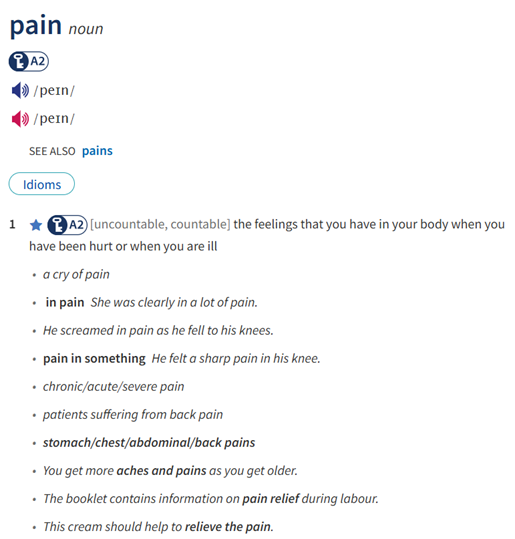Supply the correct form of the word given in each sentence.
29. The characters and events described in the book are
______
. They are not real. (IMAGINE)
Đáp án:
29. The characters and events described in the book are
imaginary
. They are not real. (IMAGINE)
29.
- Dựa vào động từ “are” để xác định từ loại cần điền vào chỗ trống.
- Dịch nghĩa của câu và tra từ điển từ gốc được cho để chọn được từ có nghĩa phù hợp nhất tạo thành câu hoàn chỉnh.
The characters and events described in the book are _______. They are not real.
(Các nhân vật và sự kiện được mô tả trong cuốn sách là _______. Chúng không có thật.)
29.
Sau động từ tobe “are” cần một tính từ
imgaine (v): tưởng tượng => imaginary (adj): không có thực, tưởng tượng ra
Câu hoàn chỉnh: The characters and events described in the book are imaginary. They are not real.
(Các nhân vật và sự kiện được mô tả trong cuốn sách đều là tưởng tượng ra. Chúng không có thật.)
Đáp án: imaginary

30. She’s working on a screen
______
of her latest novel. (ADAPT)
Đáp án:
30. She’s working on a screen
adaptation
of her latest novel. (ADAPT)
30.
- Dựa vào mạo từ “a” để xác định từ loại cần điền vào chỗ trống.
- Dịch nghĩa của câu và tra từ điển từ gốc được cho để chọn được từ có nghĩa phù hợp nhất tạo thành câu hoàn chỉnh.
She’s working on a screen _______ of her latest novel.
(Cô ấy đang làm việc trên màn ảnh _______ của cuốn tiểu thuyết mới nhất của mình.)
30.
Theo sau “a” cần một danh từ đếm được số ít
adapt (v): thích nghi => adaptation (n): sự chuyển thể
Câu hoàn chỉnh: She’s working on a screen adaptation of her latest novel.
(Cô ấy đang thực hiện chuyển thể màn ảnh từ cuốn tiểu thuyết mới nhất của mình.)
Đáp án: adaptation
31. My father is a lawyer, and he
______
me from entering the field. (COURAGE)
Đáp án:
31. My father is a lawyer, and he
discourages
me from entering the field. (COURAGE)
31.
- Dựa vào chủ ngữ “he” và giới từ “from” để xác định từ loại cần điền vào chỗ trống.
- Dịch nghĩa của câu và tra từ điển từ gốc được cho để chọn được từ có nghĩa phù hợp nhất tạo thành câu hoàn chỉnh.
My father is a lawyer, and he _______ me from entering the field.
(Cha tôi là một luật sư, và ông đã _______ tôi bước vào lĩnh vực này.)
31.
- Theo sau chủ ngữ “he” cần một động từ chia thì, mệnh đề phía trước có động từ “is” nên chỗ trống cũng phải là động từ thì hiện tại đơn.
courage (n): lòng can đảm
encourage (v) + O + to V hoặc encourage + O + IN + V-ing: khuyến khích ai làm việc gì
discourage (v) + O + FROM + V-ing: không khuyến khích ai làm việc gì
My father is a lawyer, and he discourages me from entering the field.
(Cha tôi là một luật sư và ông không khuyến khích tôi bước vào lĩnh vực này.)
Đáp án: discourages
32. You must have a good education, but practical training is
______
important. (EQUAL)
Đáp án:
32. You must have a good education, but practical training is
equally
important. (EQUAL)
32.
- Dựa vào từ động từ tobe “is” và tính từ “important” để xác định từ loại cần điền vào chỗ trống.
- Dịch nghĩa của câu và tra từ điển từ gốc được cho để chọn được từ có nghĩa phù hợp nhất tạo thành câu hoàn chỉnh.
You must have a good education, but practical training is _______ important.
(Bạn phải có một nền giáo dục tốt, nhưng đào tạo thực tế là _______ quan trọng.)
32.
Trước tính từ “important” (quan trọng) cần một trạng từ
equal (adj): công bằng => equally (adv): bằng nhau, không kém
Câu hoàn chỉnh: You must have a good education, but practical training is equally important.
(Bạn phải có một nền giáo dục tốt, nhưng đào tạo thực tế cũng quan trọng không kém.)
Đáp án: equally
33. This election should be about issues and policies, not about the
______
of the candidates. (PERSON)
Đáp án:
33. This election should be about issues and policies, not about the
personalities
of the candidates. (PERSON)
33.
- Dựa vào danh từ “issues”, “policies” và mạo từ “the” để xác định từ loại cần điền vào chỗ trống.
- Dịch nghĩa của câu và tra từ điển từ gốc được cho để chọn được từ có nghĩa phù hợp nhất tạo thành câu hoàn chỉnh.
This election should be about issues and policies, not about the _____ of the candidates.
(Cuộc bầu cử này nên xoay quanh các vấn đề và chính sách chứ không phải về _____ của các ứng cử viên.)
33.
- Theo sau mạo từ “the” cần một danh từ.
- Phía trước các danh từ “issues, policies” đều ở dạng đếm được số nhiều nên vị trí trống cũng cần một danh từ đếm được số nhiều.
person (n): một người => personality (n): tính cách
Câu hoàn chỉnh: This election should be about issues and policies, not about the personalities of the candidates.
(Cuộc bầu cử này nên đề cập đến các vấn đề và chính sách chứ không phải về tính cách của các ứng cử viên.)
Đáp án: personalities
34. The literature course has been hard work, but very
______
. (REWARD)
Đáp án:
34. The literature course has been hard work, but very
rewarding
. (REWARD)
34.
- Dựa vào động từ “been” và trạng từ “very” để xác định từ loại cần điền vào chỗ trống.
- Dịch nghĩa của câu và tra từ điển từ gốc được cho để chọn được từ có nghĩa phù hợp nhất tạo thành câu hoàn chỉnh.
The literature course has been hard work, but very _______.
(Khóa học văn học là một công việc khó khăn nhưng rất _______.)
34.
Theo sau động từ tobe “been” cần một tính từ.
reward (n): phần thưởng => rewarding (adj): bổ ích, xứng đáng
Câu hoàn chỉnh: The literature course has been hard work, but very rewarding.
(Môn văn tuy vất vả nhưng rất bổ ích.)
Đáp án: rewarding

Các bài tập cùng chuyên đề
3 2.02 WORD FRIENDS Complete the Word Friends box with the words below. Listen and check.
(Hoàn thành ô Word Friends với các từ bên dưới. Nghe và kiểm tra.)
Từ vựng:
aluminium cans (n): lon nhôm
energy (n): năng lượng
parks (n): công viên
plants (n): thực vật
recycle / throw away: plastic bags, rubbish, .
(tái chế/vứt bỏ: túi nhựa, rác thải)
protect / damage: the planet, the environment, .
(bảo vệ/thiệt hại: hành tinh, môi trường)
save / waste: water, electricity, money, .
(tiết kiệm/ lãng phí: nước, điện, tiền)
pollute / clean up: the air, the ocean, rivers, beaches, .
(gây ô nhiễm/làm sạch: không khí, đại dương, sông ngòi, bãi biển)
4 3.06 Fill in the gaps with the WordFriends from Exercise 2.
(Điền vào chỗ trống với WordFriends ở Bài tập 2.)
Tạm dịch:
historical legends: truyền thuyết lịch sử
lion dance: múa sư tử
pay homage to: bày tỏ lòng kính trọng đến
water puppet: con rối nước
1 The child loved the fire crackers and loud music of the performance at the temple.
2 The puppets appear to be moving on the water in the show.
3 Most countries have to explain the origins of their country.
4 We our ancestors when we return to our village every year.
3 Make a sentence with each Word Friend in Exercise 2.
(Đặt câu với mỗi Word Friend trong Bài tập 2.)
Many tourists are interested in traditional cuisine of Việt Nam.
(Nhiều du khách quan tâm đến ẩm thực truyền thống của xứ Nam.)
3 5.01 Listen to the Word Friends. Complete the sentences with these Word Friends.
(Hãy nghe Word Friends. Hoàn thành các câu với những Word Friends này.)
Tạm dịch:
affordable price: giá cả phải chăng
breathtaking views: khung cảnh ngoạn mục
spectacular scenery: phong cảnh ngoạn mục
memorable experience: trải nghiệm đáng nhớ
amazing tourist attractions: địa điểm du lịch tuyệt vời
cultural heritage: di sản văn hóa
friendly locals: người dân địa phương thân thiện
tasty food: thức ăn ngon
1 I took a lot of photos of the on the Hoàng Liên Mountain Range.
2 We found most of the on Phú Quốc Island not very expensive. We ate a lof of
them.
3 I’ve learned a lot about the of the H’mông people in Sa Pa.
4 My visit to Phong Nha - Bàng National Park was a truly .
5 The offered us some great food at the market.
6 There are a lot of in Lào Cai. You could spend a day or two visiting these places.
7 We climbed the mountain to get a of the valley.
8 We got tickets to Long Bay at an .
4 WORD FRIENDS Below are the Word Friends from the story. Write the missing words in Column B and match the Word Friends with their meanings in Column C.
(Dưới đây là những từ trong câu chuyện. Viết những từ còn thiếu ở Cột B và nối Từ Bạn bè với nghĩa của chúng ở Cột C.)
|
Column A |
Column B |
Column C |
|
1 trekking (leo núi) 2 join a (tham gia một) 3 hotel (khách sạn) 4 cable (cáp) 5 traditional (truyền thống) |
|
An exciting experience of trekking (Trải nghiệm trekking thú vị) (Trở thành thành viên của một nhóm người) (Những người làm việc tại khách sạn) (Xe treo trên dây cáp, chở người lên núi) (Quần áo được một nhóm người cụ thể mặc trong nhiều năm) |
1 Use the glossary to complete the Word Friends. Then make a sentence with each Word Friend.
(Sử dụng bảng thuật ngữ để hoàn thành Word Friends. Sau đó đặt câu với mỗi Word Friend.)
1 trekking adventure
(cuộc phiêu lưu leo núi)
2 river
(sông)
3 friendly .
(thân thiện)
4 view
(cảnh)
5 price
(giá cả)
6 experience
(trải nghiệm)
I’d love to take the trekking adventure inside Sơn Đoòng Cave.
(Tôi rất muốn thực hiện chuyến phiêu lưu trekking bên trong Hang Sơn Đoòng.)
3 7.01 WORD FRIENDS Complete the Word Friends box with the words below. Listen and check.
(Hoàn thành ô Word Friends với các từ bên dưới. Nghe và kiểm tra.)
|
a check-up a rash a temperature some tablets your blood pressure |
Từ vựng:
a check-up: kiểm tra
a rash: phát ban
a temperature: nhiệt độ
some tablets: một số viên thuốc
your blood pressure: huyết áp của bạn
your voice: giọng nói của bạn
Feeling ill
(Cảm thấy ốm)
come down with the flu / something
(bị cúm/cái gì đó)
have a rash / a runny nose / / a nose bleed / a cough / an infection
(bị phát ban / sổ mũi /..../ chảy máu mũi / ho / nhiễm trùng)
lose your appetite / .
(mất cảm giác ngon miệng/......)
Seeing the doctor
(Gặp bác sĩ)
get a prescription
(nhận được một đơn thuốc)
have .
(có....)
listen to your chest
(hãy lắng nghe lồng ngực của bạn)
take your temperature / .
(đo nhiệt độ của bạn /.....)
Getting better
(Trở nên tốt hơn)
get lots of rest
(nhận được rất nhiều phần còn lại)
stay in bed
(ở trên giường)
take medicine / .
(uống thuốc /....)
4 Check if you understand the Word Friends in the box. Complete the sentences with their correct form.
(Kiểm tra xem bạn có hiểu Word Friends trong hộp không. Hoàn thành các câu với dạng đúng của chúng.)
|
Word Friends |
|
acquire a language |
Từ vựng:
acquire a language: tiếp thu một ngôn ngữ
become a fluent speaker: trở thành một người nói trôi chảy
have a command of: có mệnh lệnh
hold a conversation in: tổ chức một cuộc trò chuyện bằng
encounter language barriers: gặp phải rào cản ngôn ngữ
1 Our Canadian teachers don’t Vietnamese. They do not understand our conversations in class.
(Giáo viên người Canada của chúng tôi không...tiếng Việt. Họ không hiểu cuộc trò chuyện của chúng tôi trong lớp.)
2 I was unable to English until I became fluent.
(Tôi đã không thể...nói tiếng Anh cho đến khi tôi thành thạo.)
3 Practising is the best way to . Fluency needs a lot of time to develop.
(Luyện tập là cách tốt nhất để..... Sự lưu loát cần rất nhiều thời gian để phát triển.)
4 Susan when she visited the US. She could hardly understand what American people said.
(Susan....khi cô ấy đến thăm Mỹ. Cô khó có thể hiểu được người Mỹ nói gì.)
5 It’s hard work to , but it’s not impossible. If you think you can, you can.
(Thật khó để...., nhưng không phải là không thể. Nếu bạn nghĩ bạn có thể, bạn sẽ làm được.)
3 WORD FRIENDS Match the words on the left with the words on the right to make Word Friends. Then complete the passage with the correct form of the given words.
(Ghép các từ bên trái với các từ bên phải để tạo thành Word Friends. Sau đó hoàn thành đoạn văn với dạng đúng của các từ cho sẵn.)
|
1 put (đặt) |
a like a song (như một bài hát) |
|
2 express (thể hiện) |
b emphasis on (nhấn mạnh vào) |
|
3 flow (chảy) |
c agreement (bằng lòng) |
|
4 pronounce (phát âm) |
d softly (nhẹ nhàng) |
English accents vary greatly around the world, with each region different sounds and intonations. In some parts of the United States, for example, the accent is characterized by a flattened "r" sound. In contrast, English spoken in the Caribbean can , with a melodic intonation. Meanwhile, speakers of British English are known for their ability to just like whispering. They can or disagreement with other people’s ideas nicely through their intonation.
(Giọng tiếng Anh rất khác nhau trên khắp thế giới, tùy theo từng khu vực....âm thanh và ngữ điệu khác nhau. Ví dụ, ở một số vùng của Hoa Kỳ, giọng được đặc trưng bởi âm "r" dẹt. Ngược lại, tiếng Anh nói ở vùng Caribe có thể..., với ngữ điệu du dương. Trong khi đó, những người nói tiếng Anh Anh lại được biết đến với khả năng.....giống như thì thầm. Họ có thể...hoặc không đồng tình với ý tưởng của người khác thông qua ngữ điệu của họ.)
2 9.02 WORD FRIENDS Listen and tick (✔) the phrases from the Word Friends box that you hear.
(Hãy nghe và đánh dấu ( ✔) các cụm từ trong ô Word Friends mà bạn nghe được.)
|
Word Friends |
|
blow out candles (thổi nến) (mang lại điều tốt/xấu) (tổ chức sinh nhật) (tuân theo truyền thống của) (thuê một chiếc limo) (hãy bắn pháo hoa) (làm bánh mì nướng) (đặt trang trí) (tổ chức một bữa tiệc (đường phố)) (mười tám tuổi/ lớn thêm một tuổi) ((bóc) gói quà) |
3 Complete the dialogues with the correct form of the verbs from the Word Friends box. Listen and check.
(Hoàn thành các đoạn hội thoại với dạng đúng của động từ trong hộp Word Friends. Nghe và kiểm tra.)
1 A: In the UK, seeing a black cat is supposed to bring good luck.
(Ở Anh, nhìn thấy mèo đen được cho là mang lại may mắn.)
B: Really? In my country it’s bad luck!
(Thật sự sao? Ở đất nước tôi nó là xui xẻo!)
2 A: Aren’t you going to your presents?
(Bạn không định... quà à?)
B: No, not before my friends arrive.
(Không, không phải trước khi bạn tôi đến.)
3 A: Can I the candles on my cake now?
(Tôi có thể... thắp nến trên bánh của tôi bây giờ được không?)
B: Just wait a minute. I want to take a photo first!
(Chỉ cần chờ một phút. Tôi muốn chụp ảnh trước!)
4 A: What are you doing, Tom?
(Bạn đang làm gì vậy, Tom?)
B: I’m decorations for my little sister’s party.
(Tôi... đồ trang trí cho bữa tiệc của em gái tôi.)
5 A: Do you remember when our football team won the championship?
(Bạn có nhớ đội bóng của chúng ta đã giành chức vô địch khi nào không?)
B: Of course! And the neighbours a street party. Brilliant!
(Tất nhiên rồi! Và những người hàng xóm... một bữa tiệc đường phố. Xuất sắc!)
4. WORD FRIENDS: Choose the correct option.
(Chọn phương án đúng.)
1. make/ get plans
2. boost/ get a buzz out of something
3. boost/change your confidence
4. have/ change your routine
5. give / have an adventure
6. give / get something a go
7. have / take something on board
8. say/ give an opinion
4. WORD FRIENDS: Match 1-7 with a-g to make sentences.
(Ghép 1-7 với a-g để tạo thành câu.)
1. We're going to be late - our bus is stuck in a traffic
2. You separate your glass bottles at the bottle
3. We need to use more types of renewable
4. It's incredible that some people don't believe that climate
5. We take our bottles and cans to a recycling
6. I use public
7. We should stop at this petrol
a. change is real.
b. jam.
c. station. There isn't another one for 200 miles.
d. transport when I can because it's better for the environment.
e. bank into different colors of glass.
f. energy, such as wind and solar power.
g. centre next to the supermarket.
Look at the entry of the word 'information' in a dictionary. Use what you can get from the entry to complete the sentences with two or three words.
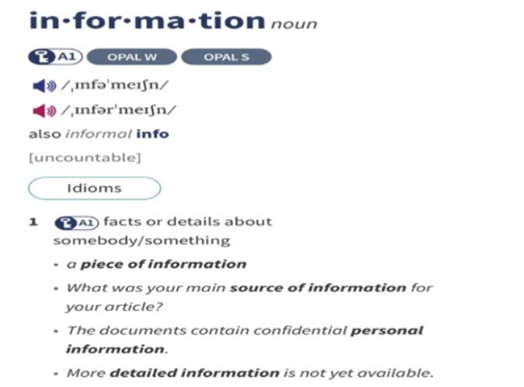
Supply the correct form of the word given in each sentence.
Look at the entry of the word “communication” in a dictionary. Use what you can get from the entry to complete the sentences with two or three words.
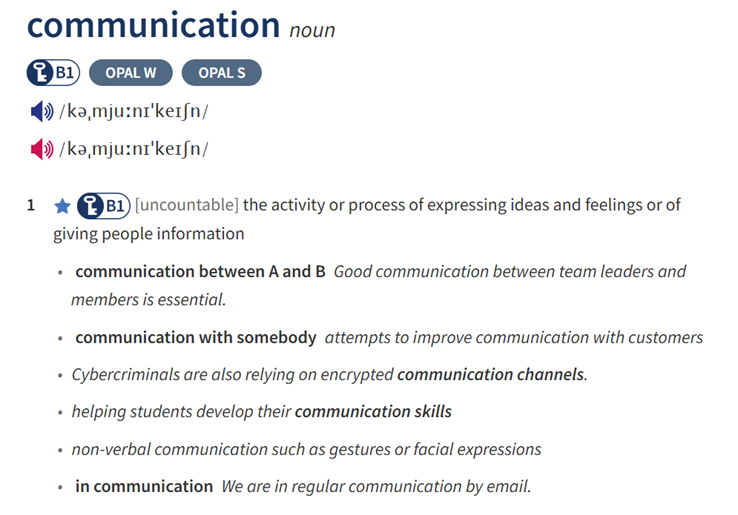
Look at the entry of the word “knowledge” in a dictionary. Use what you can get from the entry to complete the sentences with two or three words.
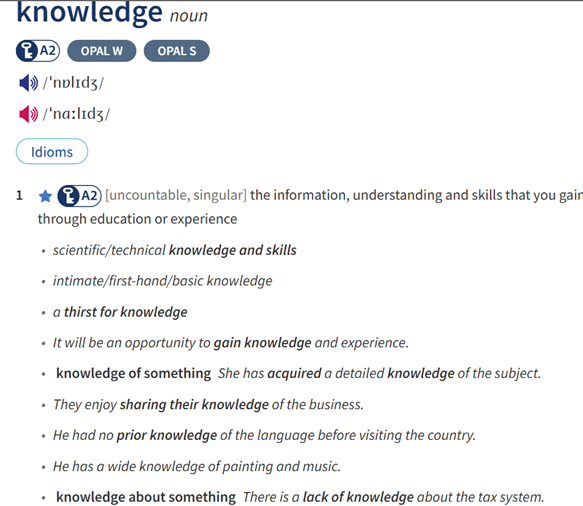
Give the correct form of the word given.
Supply the correct form of the word given in each sentence.
Look at the entry of the word “knowledge” in a dictionary. Use what you can get from the entry to complete the sentences with two or three words.
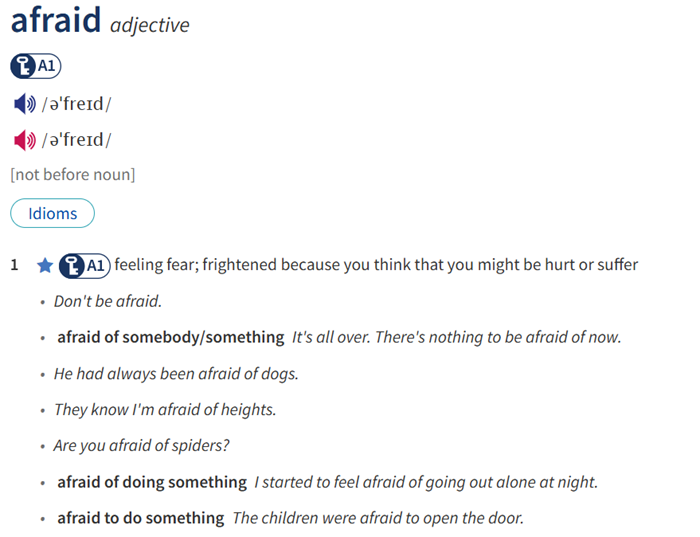
Use the correct form of the word given in each sentence.
Look at the entry of the word 'information' in a dictionary. Use what you can get from the entry to complete the sentences with two or three words.
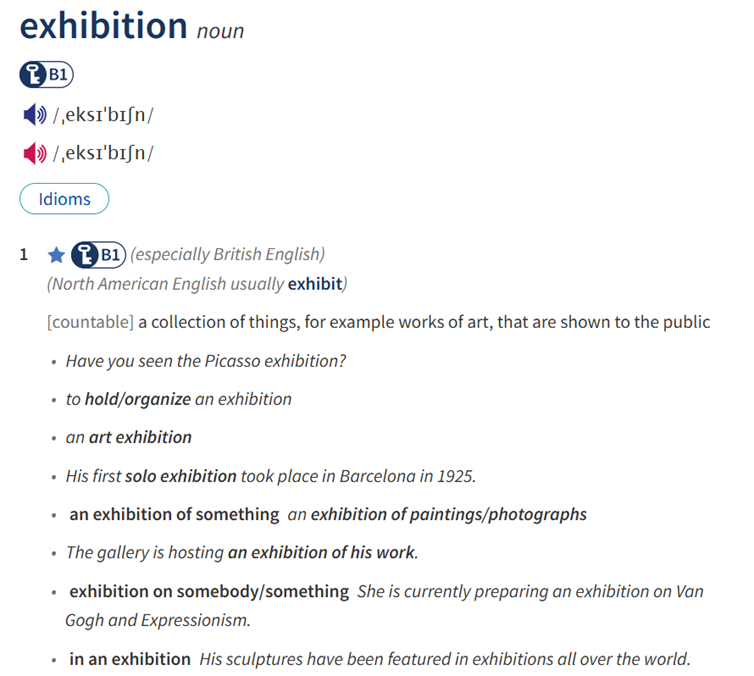
Use the correct form of the word given in each sentence.
Look at the entry of the word ‘communication’ in a dictionary. Use what you can get from the entry to complete the sentences with two or three words.
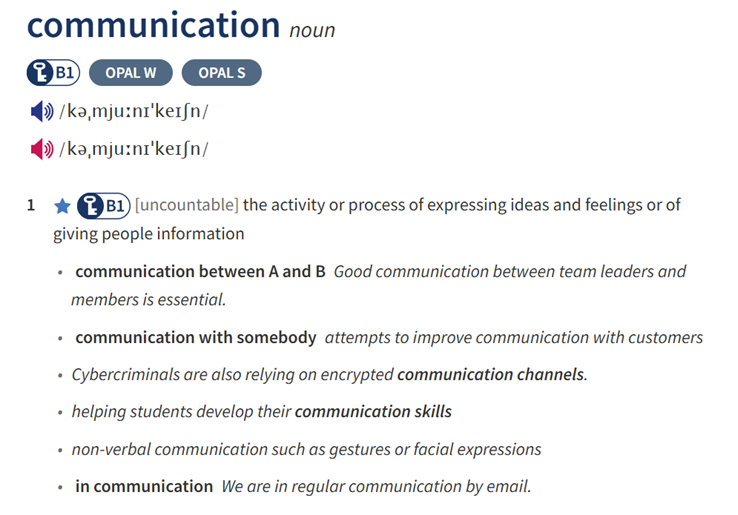
Use the correct form of the word given in each sentence.
Look at the entry of the word ‘career’ in a dictionary. Use what you can get from the entry to complete the sentences with two or three words.
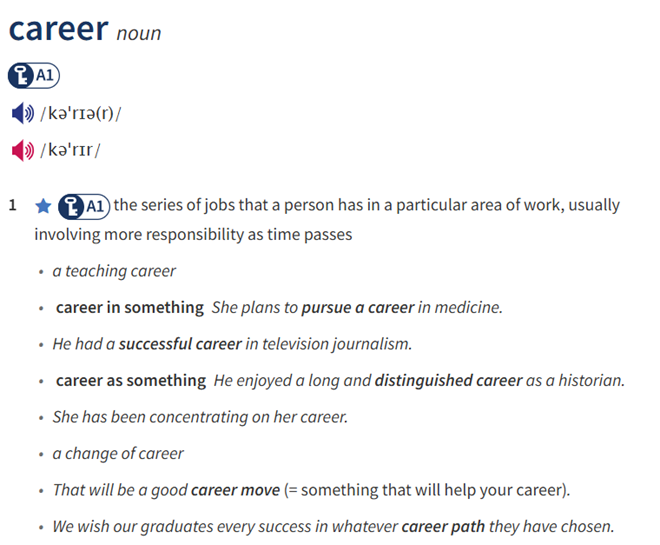
Use the correct form of the word given in each sentence.
Look at the entry of the word ‘mind’ in a dictionary. Use what you can get from the entry to complete the sentences with two or three words.
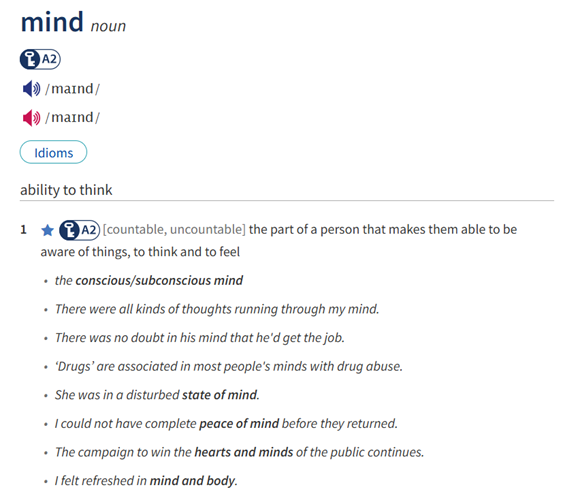
Use the correct form of the word given in each sentence.
Look at the entry of the word ‘pain’ in a dictionary. Use what you can get from the entry to complete the sentences with two or three words.
